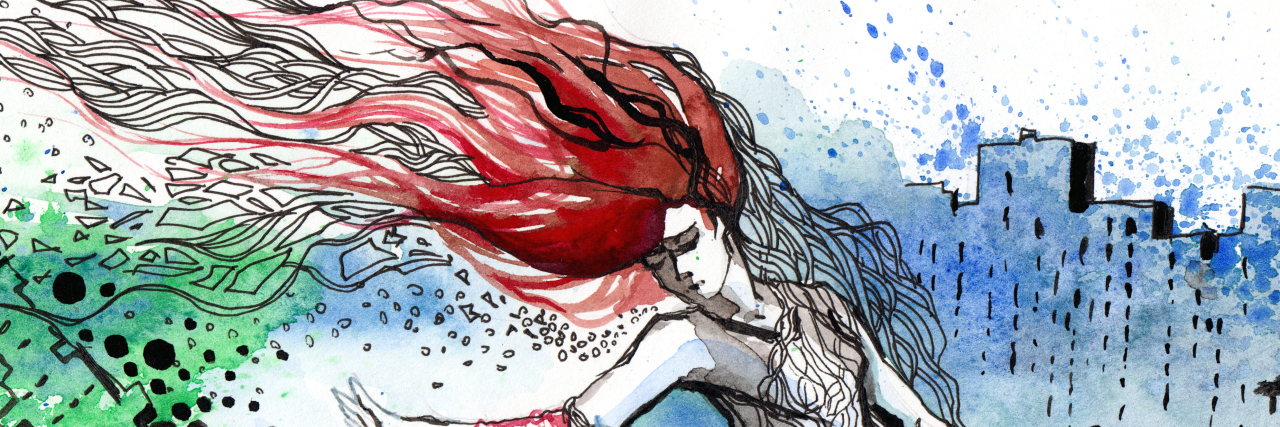When You Don't Remember Life Before Your Mental Illness
Editor's Note
If you struggle with self-harm or experience suicidal thoughts, the following post could be potentially triggering. You can contact the Crisis Text Line by texting “START” to 741741. For a list of ways to cope with self-harm urges, visit this resource.
Recovery from mental illness is challenging no matter what, but it is extra challenging when you have no recollections of life “before.” I never lived a life before trauma, before mental illness, before these monsters. I don’t remember what “healthy” feels like, mostly because I’ve never experienced it.
I was 2 years old when the trauma started. By the time I was 5, I was self-harming and had rapidly developing OCD. I was on antidepressants by the time I was 9 because my OCD, generalized anxiety disorder (GAD) and developing major depressive disorder were unmanageable for both me and my family. By the time I was 13, I was suicidal and my self-injury went from hitting myself to cutting. I spiraled truly out of control by the time I was 17.
I’m now about to turn 24. I’ve been in therapy for two years. While I’ve had therapy before, this is the first time I’m making any progress. The scariest thing is that this is the healthiest I’ve ever been, and it still feels like I can barely keep my head above water. I try to hold on hope, but sometimes I’m not sure what I’m hoping for. I have made progress in my recovery, but I wonder what the goal of my treatment is sometimes. How do you recover and get something you never had? How do you regain your health when you never truly experienced it? Trusting the process to get me to some unimagined destination is terrifying since I cannot envision where I’m going.
Most language around mental illness recovery focuses on getting back to some level of “normal,” even if it’s different than it was before illness took over. People refer to grieving the selves they lost to mental illness or trauma and look forward to the day when they once again feel OK. It is even harder, though, to hold on hope for recovery when you don’t have an idea of what you are hoping for.
The only thing I can do when these thoughts rush in is to trust. I have to trust that my therapist has an idea of where we’re going, even if I don’t. I have to trust that my brain and body are capable of healing, even if it’s a level of healing I have never experienced. I have to trust my guides on this journey and the people who see my potential while also trusting myself to be strong enough to get to a point where life does not feel like such a struggle. It is a terrifying journey, but is one I am committed to. I may never experience what most people know as “normal,” but I hold on hope that I can live a fulfilling and enjoyable life someday. I never thought I would be this healthy, so I have to think I will make it even further, too.
Getty Images photo via AnkDesign

